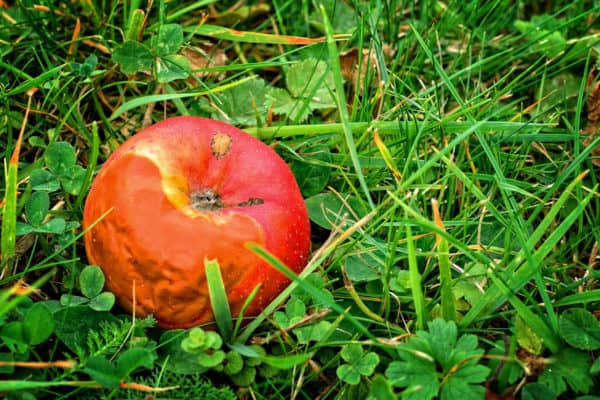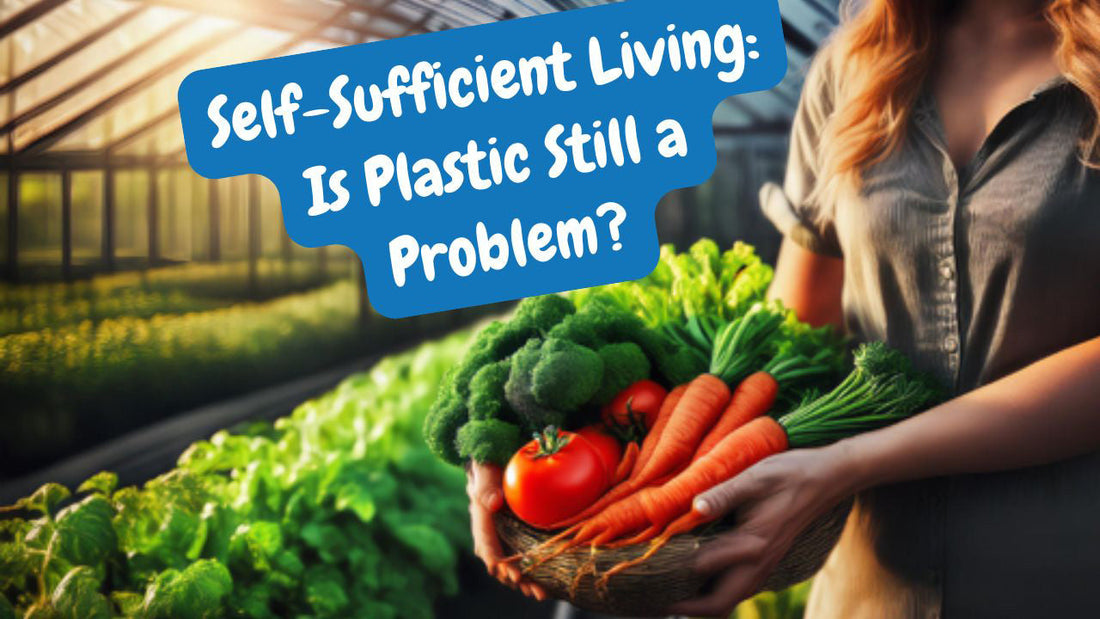With so many “green” terms and labels on the market it’s hard for the general consumer to keep up with what they all mean. Even the most “eco-friendly” consumers are confused about the different terms.
We’ve done the research to break down the eco-lingo to be clear on what materials will “break down” back into nature and what materials simply “break apart” into smaller plastics.
Let’s start with the biggest greenwashing term of all them all — degradable.
Degradable
Degradable is a word often found on the outside of a plastic bag stating how earth friendly it is. It’s easy for the regular “non-eco” consumer to associate degradable with biodegradable and that’s exactly why the term is used — word association or quite simply put it's greenwashing.
There is absolutely nothing eco-friendly about degradable plastics, they’re not biodegradable nor are they compostable. They will however eventually degrade (break apart), just like other plastics do, however they're designed to break apart faster than regular plastic items. Degradable items will break apart into smaller pieces of plastic.
Take away: Pass on these single use plastic items.
Biodegradable
While partly true — that is the way biodegradability works — however biodegradable as a term has no timeframe. The time it takes to decompose depends on a range of factors, including location and climate.

An oak tree leaf for example is 100% natural and 100% biodegradable, however the estimated time it takes for an oak leaf to fully biodegrade is up to four years. An apple can take around 1-2 months, banana skins 3-4 weeks and an orange peel can take up to 2 years to fully biodegrade.
A biodegradable straw on the other hand is manufactured product and may have to be placed into an industrial composting facility in order to fully biodegrade. How long it will take to break down in nature is unknown, but it won’t be as quick as an apple core and it certainly won’t biodegrade when added to landfill.
Take away: Biodegradable has no timeframe. Avoid biodegradable plastics and seek out compostable plastics instead.
Compostable vs. Biodegradable
Biodegradable and compostable are terms that are often confused. Although an item may be considered "biodegradable" this does not mean it can be composted.
Biodegradable plastics may, over time, break down with the aid of micro-organisms, however that doesn't mean these items can be composted.
When stating a product is certified compostable it also needs to acknowledge if that item is required to be sent to an industrial compost or if the item can be composted in a home composting system.
When an item is considered biodegradable or compostable, it relies on temperature, humidity, soil, worms or mico-organisms and moisture to aid in the decomposition. The speed at which it breaks down will be determined on those factors.

Certified Compostable - Industrial
Certified compostable plastics are either home certified or industrial certified. The difference is mostly related to heat. An industrial facility will reach temperatures of 55 degrees plus – and it will take bioplastics several weeks to break down at those temperatures. Home composting environments don't reach the those temperatures.
We decided to run a non-scientific test to see if a plastic straw that was certified for industrial composts would actually break down in a home compost. We thought perhaps that as our home compost was located in a tropical environment, that compost might get hot enough to break down a plastic straw. It did not break down in our home compost.
In fact after checking it several times for over a year we found the straw perfectly intact, just the way it was when we initially added it to the compost pile. After a year of waiting, we gave up and the plastic straw was headed for landfill. We also added one of the same straws to our "bio-test patch" it's also still perfectly intact.
What can we take away from this home based experiment?
Plastics certified for industrial composts may biodegrade over time however depending on the thickness of the plastic it's unlikely they will breakdown in a home composting system. These plastics need to be sent to an industrial facility to be returned back to nature.
It should be noted that in Australia very few industrial composting facilities exist. Further to that most industrial composting facilities do not want compostable plastics in their facilities — they take far longer to break down then regular organic matter does, or they simply don't have the technology required to break down the bioplastic material.
Finally, if compostable plastics are added to the regular plastic recycling system they will contaminate the recycling stream.
Take away: Plastics that are certified for industrial composting are not as green as we are lead to believe. They are unlikely to make it to an industrial composting facility to be composted, and they will not break down when they end up in a landfill.
Take a pass on single use plastics certified for industrial composts.
 |
 |
 |
 |
|
Aust. Industrial Compost |
Euro Industrial Compost |
Aust. Home Compost |
Euro Home Compost |
Certified Compostable - Home
Our final certification for bioplastics is the home compostable certification. The two logos that you want to look out for are the OK Home Compost logo and the Seedling Logo.
Belgian certifier TÜV Austria Belgium developed the OK Compost Home Certification scheme this is the European Standard for a Home Composting Certification.
The Seedling Logo was launched by the Australian Bioplastics Association and is used throughout Australia and New Zealand. The Seedling logo is a registered trademark of TÜV Austria and requires slightly higher standards than the OK Home Compost Logo. The most notable of the differences is that the certification tests for toxicity to worms.
The Home Compostable Verification and the Seedling logo clearly identifies and differentiates packaging materials as certified biodegradable and compostable.
This endorsement only applies to the packaging and not to the contents of the packaging.
Be sure to check that your home compostable plastic bag, does in fact have a home compostable logo printed on the bag itself.
Take away: When purchasing compostable plastics be sure to check the label. Home compostable is the logo that can be placed into your home compost.





